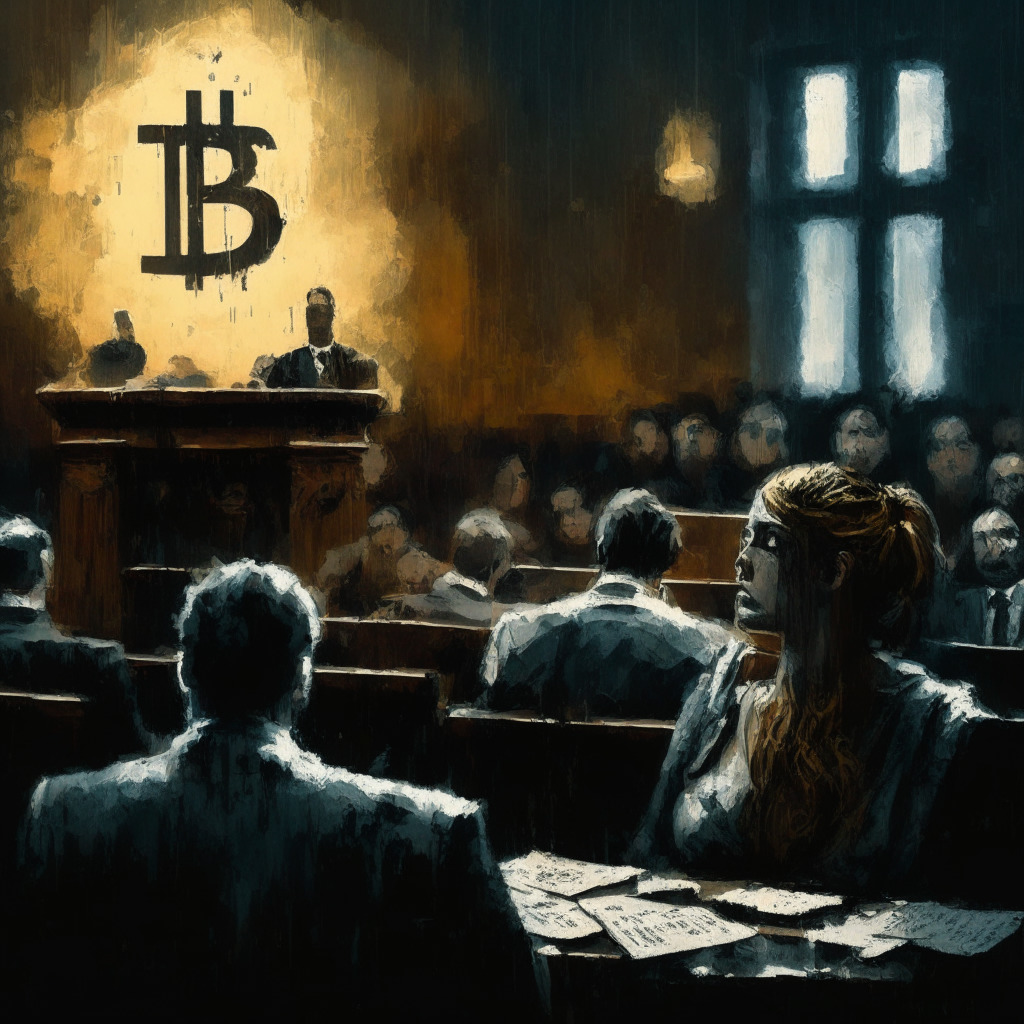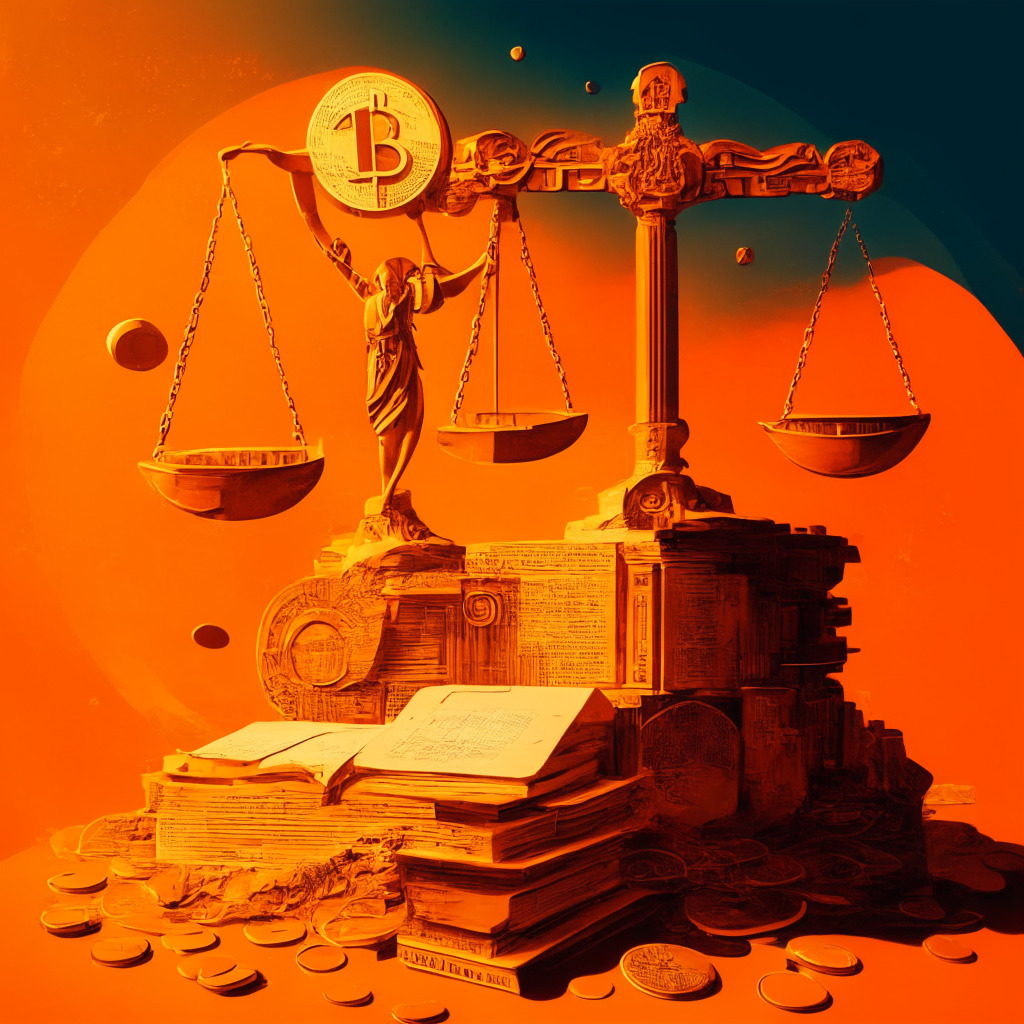US lawmakers are considering cryptocurrency regulation through a self-regulatory organization (SRO), involving the Securities and Exchange Commission and the Commodity Futures Trading Commission. Former CFTC Chair Timothy Massad suggested an SRO system, funded by the industry, to alleviate debates on token categorization and provide investor protection. However, concerns arise over the time required for SRO establishment and its effectiveness in the fast-paced crypto industry.
Search Results for: Commodity Futures Trading Commission
Johann Steynberg Case: Largest Bitcoin Fraud & the Challenge of Victim Compensation
The U.S. Federal Court has ordered Mirror Trading International CEO, Johann Steynberg, to pay $1.73 billion in restitution and a civil monetary penalty for his Bitcoin Ponzi scheme. The case, labeled the “largest fraudulent scheme involving Bitcoin” by the Commodity Futures Trading Commission, emphasizes the need for regulatory compliance and investor protection in the crypto market to prevent future scams and recover lost funds.
Digital Asset Market Boom: A Spotlight on Bitcoin, Ethereum, and Solana Amid Regulatory Uncertainty
The digital asset market recently observed a significant increase, with product inflows reaching $78 million, marking the highest rise since July. A surge was also seen in exchange-traded products, growing 37% in a week. Bitcoin experienced a notable boost, while Ethereum’s growth remains slower. Surprisingly, altcoin Solana recorded substantial outflows, yet maintains popularity. Interestingly, a majority of last week’s inflows originated from Europe due to its clearer regulatory framework.
Legal Battle-Skies: The Storm Changing Rules for Crypto-Landlords Bankman-Fried and Mashinsky
“The crypto world is currently watching the judiciary battles involving ex-FTX CEO Sam Bankman-Fried and former Celsius CEO Alex Mashinsky, accused of fraud and market manipulation. These trials, against the backdrop of market reshuffle and increasing regulatory pressure, highlight the need for orderly practices and more comprehensive regulation for long-term crypto market sustainability and investor protection.”
Unraveling Binance’s Decline: A Conspiracy of Regulations, Promos, and Competitors
“Binance, the world’s top cryptocurrency exchange, continues to undergo a significant drop in its spot market share, marking the 7th consecutive month of decline. The report attributes this decrease to the end of a zero-fee trading promotion, escalating regulatory concerns, and increased competition from alternative platforms. This suggests that short-term promotional strategies may not prove sustainable amid persistent regulatory challenges.”
The Dance of Regulations and Crypto: Boon or Bane to the Blockchain Future?
The former CEO of Voyager Digital, now under regulatory scrutiny for allegedly violating U.S. derivatives regulations, views these allegations as retrospective application of rules. This comes after Voyager’s bankruptcy and amid investigations into its unfair marketing practices. Regulations, while possibly seen as constraints, can provide stability and customer protection in the crypto market.
Crypto Mogul’s Private Jets: Legal Ramifications and the Quest for Regulation in Crypto Exchanges
The US Department of Justice might seize crypto mogul Sam Bankman-Fried’s private jets over allegations of illegal fund use. This ownership dispute involves FTX, the frequent-flyer mogul’s cryptocurrency exchange, the US government, and participating aviation companies. While he pleads not guilty to all charges, the case raises serious questions about crypto trading platforms’ reliability, security, and transparency.
Former Celsius Network CEO Set for Courtroom Drama: A Deep Dive into Crypto’s Legal Wranglings
“The former CEO of Celsius Network, Alex Mashinsky, is expected to go to trial on charges of misleading investors and claiming billions from users. This case traces back to Celsius Network’s bankruptcy and Mashinsky’s resignation in 2022, causing the initiation of legal cases by several U.S. government bodies. The outcome awaits and reflects larger narratives in cryptocurrency legal affairs.”
CFTC’s Crypto Enforcement Surge: Balancing Market Innovation and Regulatory Compliance
In fiscal year 2023, the CFTC enforced cryptocurrency-related actions, garnering over $6 billion in penalties. A significant case involved Ooki DAO that led to greater understanding of how century-old laws apply to digital entities. This highlights the challenges regulatory bodies face in ensuring compliance in a rapidly evolving technology landscape.
US Government Shutdown’s Potential Impact on Crypto Regulations and Legislation
A potential US government shutdown could significantly impact digital assets and crypto-related legislation. Regulatory operations could stall, bills beneficial to digital assets may hit roadblocks, and key financial regulators would operate with limited enforcement and oversight capabilities. Blockchain regulations may be deprioritized amid other post-shutdown concerns.
Balancing Act: US Bill Stirs Debate on Off-Chain Transactions Regulation
A new U.S bill introduced by Representative Don Beyer, aims to regulate off-chain crypto transactions by requiring service providers to report all such transactions to a CFTC-registered repository. The bill strives for increased transparency to prevent potential disputes, manipulation, and fraud, although concerns about privacy infringement and stifling innovation are being raised.
Unveiling Off-Chain Transactions: A Step Towards Transparency in Crypto Trades
U.S. Rep. Don Beyer has proposed a bill requiring off-chain digital commodity transactions to be transparently reported. The bill aims to mitigate privacy concerns and risk of fraud by insisting on transparency in crypto trading platforms, requiring them to report all transactions to approved repositories. This move aims to foster confidence within the crypto market and prevent situations similar to the FTX collapse.
Fraud in Cryptoworld: The Need for Stronger Regulations and the Road to Trust
“Recent charges against IcomTech’s CEO underscore the need for robust regulation in the crypto world. The company, an alleged counterfeit crypto mining business, collapsed in 2019, with investors unable to withdraw their profits. While this gloomy picture may paint a grim future for blockchain, new regulations can provide a safety net that nurtures innovation and ensures fair play.”
The US Political Unrest: A Roadblock for Crypto-focused Bills and Digital Asset Future
“The threat of a US government shutdown could influence the future of digital assets. Crypto-focused bills like the FIT, Blockchain Regulatory Certainty Act, and Keep Your Coins Act risk being delayed. Any shutdown could stall these bills’ progress until government funding is secured for the next fiscal year.”
Crypto Progress: Are Pending US Bills at Risk Due to a Government Shutdown?
“The imminent US government shutdown threatens several crypto-focused bills awaiting a House vote, casting uncertainty over their fate. The longer the shutdown persists, the more delayed will be crucial crypto reforms. In this scenario, potentially causing regulatory stagnation in crypto markets.”
Introducing Crypto Derivatives to Traditional Finance: A Promising Endeavor or a Risky Affair?
Former FTX.US president Brett Harrison’s Architect Financial Technologies has been approved by the National Futures Association to operate as an introducing broker, positioning it closer to legitimizing crypto derivatives. Harrison anticipates bridging traditional and crypto derivatives markets through regulated exchanges, but this poses potential risks, including increased scrutiny and stifling regulations.
Escalating Tensions Between SEC and Binance.US: Pros, Cons, and the Underlying Blockchain Battle
The U.S. Securities and Exchange Commission (SEC) accuses Binance.US and BAM of possibly violating federal securities laws due to their staking, clearing, and brokerage services. The SEC’s concern revolves around Binance.US’ reliance on a custody provider, Ceffu, potentially leading to violations of prior agreements. Binance.US denies any wrongdoing, while regulation pressure continues to increase. This situation illustrates a broader discussion surrounding crypto regulation nuances, transparency, investor protection, and maintaining decentralization.
How US Regulations Can Spur Transparency In The Cryptocurrency Industry
“Senator Sherrod Brown has expressed concern about the cryptocurrency industry’s lack of self-regulation and transparency, predominantly benefiting insiders and executives. He urged key U.S. financial policy-makers to increase transparency and balance fostering innovation with protecting consumers in the crypto industry.”
Sweeping Exits and Legal Challenges: Decrypting the Binance.US Saga
“In the face of increasing legal challenges, two more senior executives have left their roles at Binance.US, following the departure of CEO Brian Shroder. The ongoing regulatory scrutiny has invoked potential investigations by the SEC and DOJ, addressing allegations of unregistered securities operations. These developments underline the escalating cryptocurrency compliance demands and their inevitable impact on market confidence and dynamics.”
Leadership Exodus at Binance US: The Impact of Regulatory Scrutiny on Crypto Giants
Binance US, a major cryptocurrency exchange, has seen multiple high-profile departures amid increasing regulatory scrutiny from the U.S. Securities and Exchange Commission (SEC). Accusations against the company include operating unauthorized platforms and violating commodities laws. These challenges alongside a significant drop in U.S. market share place Binance US at a crucial crossroads.
Regulatory Tightrope: Striking Balance between Crypto Transparency and Investor Safety
U.S. Sen. Sherrod Brown’s call to regulators for promoting transparency and safeguarding investor interests suggests a push for stronger authority over digital assets. This results in questioning the readiness of the crypto enthusiasts to embrace potential regulatory changes in the crypto realm.
Navigating the Storm: DeFi Regulations, Penalties, and the Future of Crypto Innovation
Recently, the CFTC launched enforcement proceedings against several DeFi protocols, imposing substantial penalties for alleged regulatory infractions. This unfolding regulatory drama draws attention to the clash between innovative crypto industry and traditional financial regulations. It raises crucial questions about compliance, investor protection, and the potential impact on America’s technological advancement position.
Regulatory Scrutiny vs Technological Advancements: Navigating the Complex Crypto Landscape
Despite regulatory challenges and hacking threats, the crypto sphere continues to innovate, with enhanced privacy, user experience, and transaction efficiency. As Ethereum plans a major transformation and Ripple maintains its legal standing, the tokenized assets market could reach $16 billion by 2030. However, effective regulation remains vital to safeguard all stakeholders.
Navigating the ETF Race: A Deep Dive into Hashdex’s Ethereum ETF Strategy and The SEC’s Pending Approval
The Nasdaq stock exchange is seeking SEC approval to list the Hashdex Nasdaq Ethereum ETF, an innovative approach to crypto investment within regulatory frameworks. This ETF will incorporate spot ether holdings and futures contracts, aiming to reflect the daily fluctuations in the Nasdaq Ether Reference Price.
Binance.US Shake-Up: Regulatory Pressure or Strategic Cleanup? The Crossroads of Crypto Exchanges
“Binance.US axes one-third of its workforce and its CEO, Brian Shroder, exits amid legal troubles. These events could be a strategic cleanup in response to regulatory scrutiny, triggering transformation, enhanced security and transparent operations. Consequently, this development underscores the importance of cooperation with regulatory bodies in the cryptocurrency world.”
Decoding DeFi: Navigating the Maze of US Regulations and the Promising Blockchain Future
“The US DeFi landscape hit an inflection point as the CFTC filed lawsuits against three companies, accusing them of offering financial products without proper registration. Amidst ambiguity, questions arise about DeFi’s future in the US, regulatory hurdles, and potential to revolutionize world finance. Undoubtedly, for DeFi to truly flourish, regulatory clarity and a willingness to embrace the evolving landscape is crucial.”
Coinbase’s Global Game Plan: Tapping into Foreign Markets Despite US Regulatory Tensions
Coinbase, a global digital asset exchange, plans to expand its operations into Canada, the UK, Australia, Brazil, Singapore, and the European Union, prioritizing these markets due to more progressive digital asset regulations. This decision came after acknowledging restrictive regulations in the US market as a significant impediment. Key strategies for expansion include partnering with banks, payment service providers, and increasing local community engagement.
Decentralized Finance vs Centralized Finance: Coming Conflict or Synergetic Co-Existence?
“CEO of Binance, Changpeng Zhao, predicts a future where DeFi surpasses CeFi, fueled by his belief in the potential of decentralization. However, the Bank for International Settlements argues that pure DeFi has limited real-world application due to its requirement for centralized oracles.”
Unveiling the Dark Side of Crypto: The MTI Case, Regulatory Challenges and Forward Steps
“CFTC imposed a $1.7 billion fine on Mirror Trading International for fraud, revealing systemic issues plaguing the crypto space. The case emphasizes the necessity for change and serves as a reminder for investors to be wary of potential fraud, misconduct, and market manipulation.”
Navigating the Regulatory Conundrum: A Balanced Approach for DeFi Advancement
Commissioner Summer K. Mersinger raises concerns over CFTC’s focus on enforcement actions rather than engaging with the public and stakeholders when dealing with DeFi technologies. She suggests collaborative rulemaking, regulatory instruments and public engagement can be more effective in managing DeFi’s innovative scope and ensuring market participant safety.
Coinbase’s New Expansion: A Strategic Move or Industry Pressure?
Coinbase, a top crypto exchange, aims to expand to non-U.S. markets, prioritizing countries with clearer crypto regulations. The company’s strategy includes acquiring licenses, setting operations, and registering in these markets. It points to a lack of crypto-forward regulation in the U.S., potentially impacting its influence in the crypto field.
Navigating the Wave: How Binance Battles Rumors, Regulations and Employee Departure
Binance CEO, Changpeng Zhao, has dismissed rumors about financial instability, insisting the platform has “no liquidity issues.” Despite multiple executive departures, Zhao maintains that all customer funds are secure, pointing to recent crypto industry victories and expansions as positive indicators.































